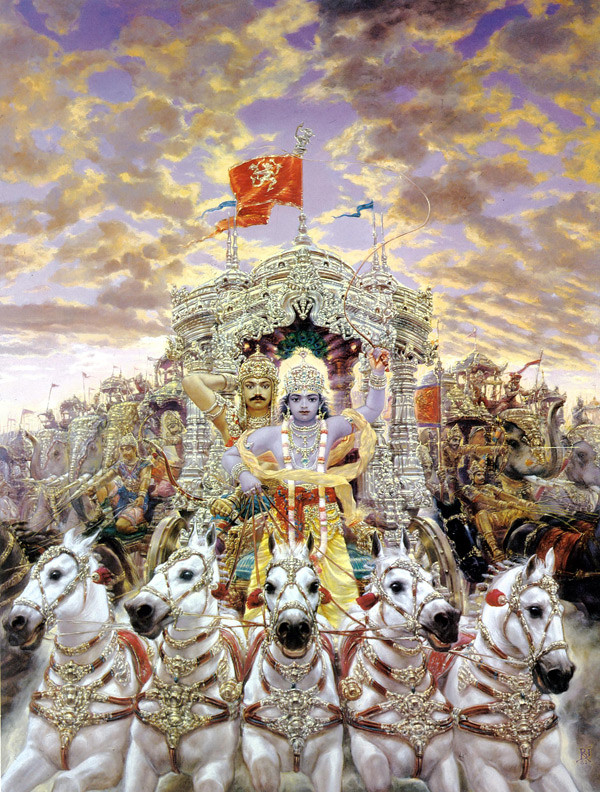Lord Krishna's Profound Lessons in Mahabharata
Certainly, the training that Lord Krishna imparted to Arjuna during the Bhagavad Gita, a sacred conversation within the Mahabharata, are profound and retain to preserve religious and philosophical importance. Here, we’re going to give an explanation for a number of the important thing classes in detail and in easy-to-recognize language:

Lord Krishna's lessons to Arjuna:
1. Duty and Dharma (Righteousness): Lord Krishna emphasizes the importance of appearing one’s duty and adhering to dharma, or righteousness. He tells Arjuna that as a warrior, it’s far his obligation to combat in the righteous conflict for justice and against oppression. This lesson underscores the concept that everyone has precise roles and responsibilities in lifestyles, and they need to satisfy them with integrity.
2. Detachment from the Results: Lord Krishna advises Arjuna to perform his duties without attachment to the results. He teaches that at the same time as we have control over our movements, we do no longer have control over the consequences. By relinquishing attachment to achievement or failure, people can discover internal peace and freedom from tension.
3. Self-Realization and the Eternal Soul: Lord Krishna explains the concept of the eternal soul or Atman. He teaches that the bodily body is transient, however the soul is eternal and indestructible. Understanding this allows one conquer fear of dying and struggling, because the soul transcends those bodily factors.
4. The Path of Devotion (Bhakti Yoga): Lord Krishna extols the direction of devotion, emphasizing that unwavering love and devotion to the Divine are powerful methods to reap religious cognizance. He encourages Arjuna to give up himself absolutely to the divine will.
5. Equanimity and Even-mindedness: Krishna advises Arjuna to remain equanimous in all circumstances, whether or not in pleasure or sorrow, victory or defeat. This even-mindedness is important for preserving intellectual balance and making clever decisions.
6. Self-Control and Discipline: Lord Krishna teaches the significance of strength of will and disciplined living. He explains that controlling one’s desires, senses, and mind ends in internal peace and non secular boom.
7. The Unity of All Paths: Lord Krishna emphasizes that there are various paths to non secular recognition, along with the route of information (Jnana Yoga), the direction of meditation (Dhyana Yoga), and the path of selfless service (Karma Yoga). He assures Arjuna that each one these paths in the end lead to the same reality.
8. Surrender to the Supreme: Krishna reveals his divine generic form to Arjuna, demonstrating that the whole thing within the universe is a manifestation of the divine. He invitations Arjuna to give up absolutely to the Supreme Being, understanding that the Divine is the final supply and destination of all.
9. Compassion and Non-Violence: Lord Krishna emphasizes the importance of compassion and non-violence. While Arjuna is a warrior, Krishna encourages him to fight simplest for justice and in no way to harm innocent beings. This lesson highlights the ethical element of warfare and the want to avoid pointless violence.
10. The Eternal Teacher: Finally, Lord Krishna reminds Arjuna that he is not simply his charioteer but additionally his eternal trainer. He imparts wisdom that transcends time and region, serving as a guiding light for all seekers of reality.
These teachings of Lord Krishna to Arjuna in the Bhagavad Gita aren’t handiest precious inside the context of the Mahabharata however additionally offer undying know-how for people in search of a deeper understanding of life, spirituality, and the direction to inner peace and self-realization.
